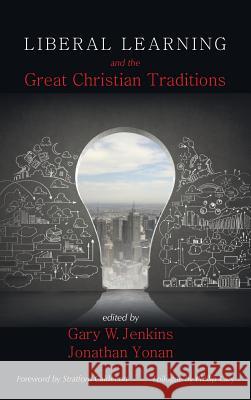Liberal Learning and the Great Christian Traditions » książka
Liberal Learning and the Great Christian Traditions
ISBN-13: 9781498279963 / Angielski / Twarda / 2015 / 168 str.
Liberal Learning and the Great Christian Traditions
ISBN-13: 9781498279963 / Angielski / Twarda / 2015 / 168 str.
(netto: 184,11 VAT: 5%)
Najniższa cena z 30 dni: 191,17
ok. 16-18 dni roboczych.
Darmowa dostawa!
As an aspect of civic humanism, the liberal arts comprehended the skills necessary to realize the common good of free citizens within a free society, the mental habits basic to citizenship as preached and taught in the classical, medieval, and Renaissance worlds. The liberal arts formed people with the virtues proper to civic life. The Church has never been quiet about these issues. In every age Christians have addressed themselves to what the human animal is that such a being can be trained in civic virtue, and how this can best be done, why Christians should care, and what Faith has to say on such matters as profane learning. This book's essays explore how the various Christian Traditions have taken up the question of liberal learning by setting it within the context of their own peculiar idioms and histories. ""Gary Jenkins and Jonathan Yonan have drawn together an excellent selection of essays on traditional liberal education viewed in the context of a diversity of Christian spiritual traditions . . . In their various fashions, all of them have placed marked emphasis on the pursuit of wisdom, and they are represented here by a distinguished roster of learned scholars. In the context of the current crisis of the humanities, the timing of this volume's appearance is especially welcome."" --Torrance Kirby, Professor of Ecclesiastical History, McGill University ""This volume presents a much-needed reflection on the nature of the liberal arts, and thus on the nature of education in general. In a world gone mad for technology, efficiency, and structure, a world in which persons have become automatons, these disparate Christian voices call upon us to contemplate the good, the true, and the beautiful, and for no other reason than their goodness, truth, and beauty."" --William J. Tighe, Associate Professor of History, Muhlenberg College, Allentown, PA ""Jenkins and Yonan gather representatives of major traditions who suggest to evangelicals that a classical education is essential to an informed Christian life. The discussion includes Orthodox and Catholic contributions, consistent with the growing evangelical attraction towards the Great Tradition. Here we find compelling reasons from the Fathers, careful thought, and contemporary analysis, for an education that 'leads out' from shadows into light, going beyond pragmatics towards truth, beauty, and the good."" --Edith M. Humphrey, William F. Orr Professor of New Testament, Pittsburgh Theological Seminary Gary W. Jenkins is Van Gorden Professor of History and Chair of the History Department at Eastern University. Jonathan Yonan is the Dean of the Templeton Honors College at Eastern University and Assoicate Professor of History.
As an aspect of civic humanism, the liberal arts comprehended the skills necessary to realize the common good of free citizens within a free society, the mental habits basic to citizenship as preached and taught in the classical, medieval, and Renaissance worlds. The liberal arts formed people with the virtues proper to civic life. The Church has never been quiet about these issues. In every age Christians have addressed themselves to what the human animal is that such a being can be trained in civic virtue, and how this can best be done, why Christians should care, and what Faith has to say on such matters as profane learning. This books essays explore how the various Christian Traditions have taken up the question of liberal learning by setting it within the context of their own peculiar idioms and histories.""Gary Jenkins and Jonathan Yonan have drawn together an excellent selection of essays on traditional liberal education viewed in the context of a diversity of Christian spiritual traditions . . . In their various fashions, all of them have placed marked emphasis on the pursuit of wisdom, and they are represented here by a distinguished roster of learned scholars. In the context of the current crisis of the humanities, the timing of this volumes appearance is especially welcome."" --Torrance Kirby, Professor of Ecclesiastical History, McGill University ""This volume presents a much-needed reflection on the nature of the liberal arts, and thus on the nature of education in general. In a world gone mad for technology, efficiency, and structure, a world in which persons have become automatons, these disparate Christian voices call upon us to contemplate the good, the true, and the beautiful, and for no other reason than their goodness, truth, and beauty.""--William J. Tighe, Associate Professor of History, Muhlenberg College, Allentown, PA""Jenkins and Yonan gather representatives of major traditions who suggest to evangelicals that a classical education is essential to an informed Christian life. The discussion includes Orthodox and Catholic contributions, consistent with the growing evangelical attraction towards the Great Tradition. Here we find compelling reasons from the Fathers, careful thought, and contemporary analysis, for an education that leads out from shadows into light, going beyond pragmatics towards truth, beauty, and the good.""--Edith M. Humphrey, William F. Orr Professor of New Testament, Pittsburgh Theological SeminaryGary W. Jenkins is Van Gorden Professor of History and Chair of the History Department at Eastern University. Jonathan Yonan is the Dean of the Templeton Honors College at Eastern University and Assoicate Professor of History.











